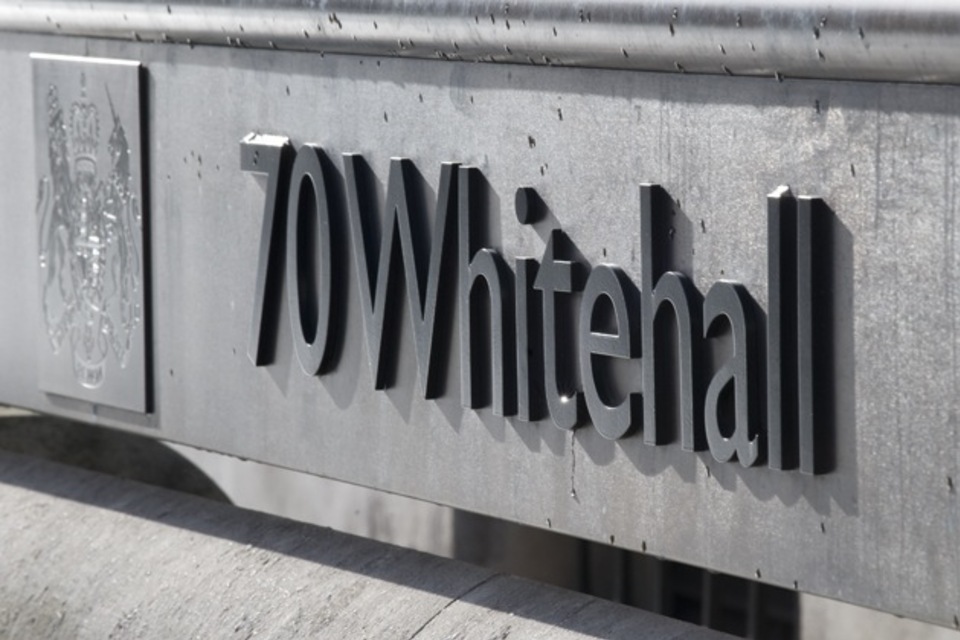More than £69 billion in funding for England’s councils has been confirmed today as the government delivers on its commitment to restore trust and stability in public services.
Following the provisional Settlement in December, today’s final Settlement provides a 6.8% in cash terms increase in councils’ Core Spending Power compared to 2024-25. With increased demand and running costs rising, this money is a lifeline and will guarantee no council sees a decrease in their Core Spending Power.
Families across the country rely on crucial council services such as social care, which is why the government is providing up to £3.7 billion additional funding to social care authorities to deliver this. This includes an £880 million uplift to the Social Care Grant, compared to 2024-25.
A new £270 million Children’s Social Care Prevention Grant will support the national roll out of vital family help, keeping children safe and ensuring they get the best start in life as set out in the Plan for Change.
While fundamental change cannot happen overnight, the government is working at pace with the sector to deliver the ambitious reform needed to spread power, money and resources more fairly across the country.
Today, £60 million has also been confirmed to fund long-term improvements to the local government sector over the next year, including empowering mayoral areas leading the devolution revolution in delivering local priorities and supporting councils’ financial reporting with a fit and legal audit system to ensure transparency.
Rebuilding the sector from the ground up is a crucial step towards the national Plan for Change to bring better value for money, sustained economic growth and fix our country’s public services.
The government has maintained the 5% referendum principles on council tax increases – the same level set by the previous administration- to protect taxpayers from excessive increases.
Unlike previous years, this government has introduced a stricter approach to the inherited arrangements that allowed councils to request higher council tax increases if they need Exceptional Financial Support and see increases as critical to maintaining their financial sustainability.
This approach puts taxpayers at the forefront, for example by only agreeing increases where councils are amongst the lowest existing levels for tax. In fact, taxpayers in these areas are still expected to be paying less than the average council tax compared to similar councils. This approach has limited the number and scale of additional increases, with the government not agreeing where councils have asked to increase council tax by a very high amount or by high amounts in successive years.
Deputy Prime Minister, Angela Rayner said
Councils deliver vital services across the country – driving growth and local economies and providing a lifeline for those that need it most.
Through our Plan for Change we are determined to fix the foundations of local government; investing where it is needed, trusting local leaders and working together to deliver growth, better health and social care services and the affordable homes people need.
Minister of State for Local Government and English Devolution, Jim McMahon OBE said
We have been clear we will fix the foundations of local government. That means an end to short-term solutions and instead rebuilding the sector to put councils on a more stable and secure footing.
>Local leaders play a crucial role in delivering the day-to-day services communities across the country rely on, which is why we want to work with them towards a fairer funding model that tackles regional inequality and prioritises outcomes for local people.
This final Settlement marks an important step towards a government focused on efficiency, value-for-money and a community first approach. For the first time, a new £600 million Recovery Grant will help support places most in need, which maximises public spending to ensure it delivers more meaningful outcomes.
The sector is already having its say via an open consultation on how to best streamline the outdated funding model and distribute taxpayer’s money more fairly, based on an updated assessment of need, enabling every council to deliver high quality services to their communities.
As part of handing local leaders more power and control of their funding, the government will end outdated processes and bureaucracy of bidding for different funding pots and bring forward the first multi-year settlement in a decade in 2026-27 to provide certainty and economic security to councils setting budgets.
The provisional settlement consultation was open for 4 weeks and closed on 15 January 2024.
Notes to Editors
Further details on all of the above, including allocations for individual councils can be found on the Final Local Government Finance Settlement page 2025-26 here.
See the Deputy Prime Minister’s full Written Ministerial Statement here Written statements – Written questions, answers and statements – UK Parliament
The Final Settlement will be debated in the House of Commons on Wednesday 5th February.
The government’s consultation on funding reform from 2026-27 can be found here, and remains open until 12 February.
Two statutory reports have also been published
A record number of councils asked the government for support this year to help them set their budgets, and a record number of these councils have asked for additional council tax increases to aid their financial recovery.
For councils that require Exceptional Financial Support, the government has considered requests from councils for bespoke council tax referendum principles on a case-by-case basis and has agreed bespoke referendum principles for six local authorities. All six of the councils have been clear they will not be able to set a balanced budget without government support. The government has not agreed to all requests and has not agreed to any request in its entirety, to reduce the impact on taxpayers. In the areas where we have made the difficult decision to allow limited council tax rises, we expect that no taxpayer will see their bills reach higher than the average compared to similar authorities.
Core Spending Power is a measure of the resources available to local authorities to fund service delivery. It sets out the money that has been made available to councils through the local government finance settlement.
The government confirmed unringfenced allocations of the £515m of funding announced at the provisional local government finance settlement to support to local government meet the increased costs of directly employed staff arising from changes to employer National Insurance Contribution (NICs).
The previous government’s referendum threshold for council tax will be maintained at 3% with 2% for the adult social care precept to protect local taxpayers.
Several grants including the Rural Services Delivery Grant and the Services Grant will be repurposed. The government will ensure the impact of rurality on the cost of service delivery and demand is reflected in the public consultation next year. Places with a significant rural population will on average receive almost a 6% increase in their Core Spending Power. No council will see a reduction.
Councils will also receive over £1 billion in total through the Extended Producer Responsibility for Packing scheme (pEPR) which will cover the existing costs they incur for managing household packaging waste, provide additional funding for new legal duties, and support much needed investment in the waste and recycling industry.








